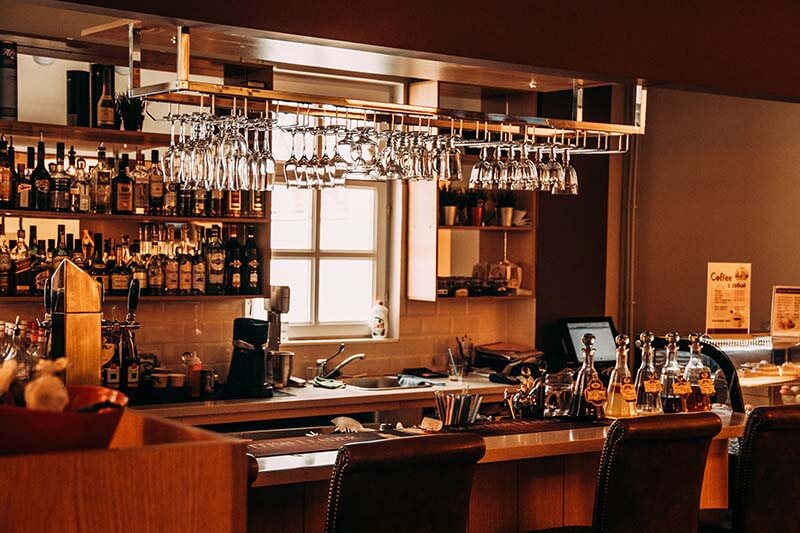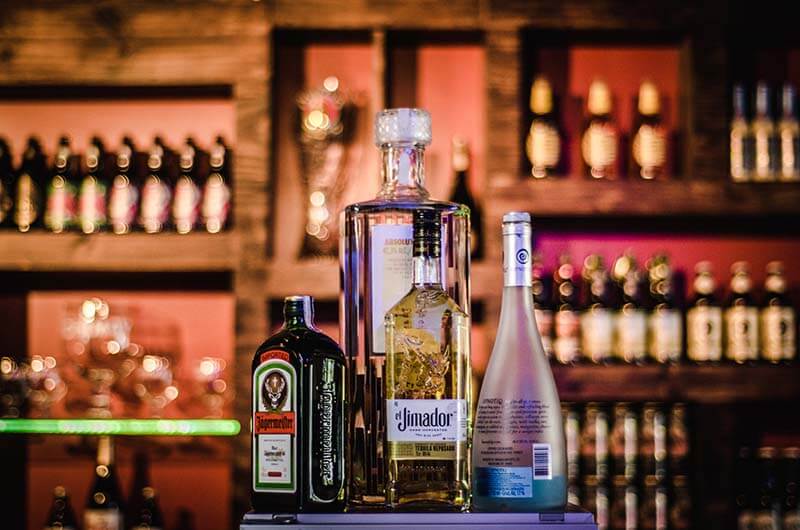DRAM SHOP RESOURCE CENTER
LEARN MORE ABOUT ATTORNEYS
DRAM SHOP LIABILITY LAWYER
Dram shop laws determine the liability of bars and other commercial establishments that sell alcohol. Bars, liquor stores and other establishments need to have policies in place to prevent the sale of alcohol to individuals who are obviously inebriated—and to minors—to avoid potential liability defined by dram shop laws.
In Arizona, as in many other states, such establishments may be held liable when they serve alcohol to intoxicated individuals who then go on to harm others due to their inebriation. These establishments face similar liability if they sell alcohol to someone under 21 knowingly or due to a failure to verify identification.
What is a Dram Shop?
Establishments serving alcohol were often referred to as dram shops because they served liquor in drams. A dram was a unit of measurement, somewhat less than a modern shot, which has gone out of popular use in modern times.
The Purpose of Dram Shop Laws
Most adults are able to enjoy alcohol responsibly. When they leave home to enjoy alcoholic beverages, they know their limits and pay attention to those limits. But sometimes people fail to respect their limits. It can happen by accident or intentionally, but the result is the same. The individual drinks enough to become inebriated, exposing themselves to all of the possible risks associated with inebriation.
Lawmakers were well-aware of the consequences of drinking and the trouble that could result when a bar patron drank too much and left the establishment. They could damage property, injure themselves or injure others. With the rise of the automobile, the risks of damage and injury became even greater. Dram shop laws were instituted to deter drinking establishments from overserving patrons—and thereby prevent the dangers that the heavily intoxicated patron would encounter.
Expectations for Drinking Establishments
Most relatively sober individuals are aware of when someone has “had enough.” But while friends, family and bystanders may say something to the person who is trying to get another drink when he or she is intoxicated, in the end it comes down to the bartender, server or other professional selling the alcohol to say “No.”
For bartenders and others serving alcohol in an establishment, the awareness of intoxication becomes part of the job. Bars and liquor stores are expected to exercise discretion when serving patrons. They are allowed to operate under the assumption that they will take care in who they serve to avoid creating unnecessary risk to other patrons and the community at large.
Owners of these establishments are expected to train staff in how to identify obvious intoxication and to deny alcohol to those who may pose a danger if they are given more alcohol. Even if the employee is not comfortable denying service, there should always be someone the employee can call on—like a manager—to handle the situation diplomatically.

When an establishment serving alcohol fails to deny alcoholic beverages to a person who is intoxicated, it greatly increases the liability of the establishment. If an adult is served when he or she shouldn’t be, and that adult hurts someone else or damages property, someone needs to be held responsible. The same is true for situations where a minor is given alcohol and then hurts him or herself, someone else or damages property. Each of these situations is preventable by a simple protocol enforced by liquor license holders.
Dram shop laws are put in place to ensure that establishments serving alcohol are held accountable for the damage caused by customers who were served when they should not have been. If a patron gets more alcohol from the establishment when he or she is obviously intoxicated, then goes on to cause property damage or harm another person, then dram laws are used to hold the establishment liable for damages.
Dram Shop and Liquor Liability in Arizona
The dram shop law in Arizona is known as Arizona Revised Statute § 4-311(D). It indicates the conditions for an establishment holding a liquor license to be held liable for serving people who are intoxicated—both adults and minors. The conditions include:
- The liquor license holding establishment sold alcohol to an individual who’s intoxication was obvious
- The person who purchased the alcohol consumed the alcohol before causing the damage or injury
- The damage or injury caused was the result of the alcohol consumed by the individual
It is worth looking at each condition on its own to determine exactly what the law means.
Consumption Before Damage or Injury
An establishment serving someone who is obviously intoxicated is not enough for liability. The intoxicated individual must consume the alcohol before causing the damage. For instance, if a person is served when obviously intoxicated, then goes home and sleeps for a while, then causes damage, it will be much harder to prove liability on the part of the establishment.
Obvious Intoxication
Obvious intoxication is exactly what it sounds like. A person that is obviously intoxicated gives clear signs that he or she has consumed too much of an intoxicating substance. In the case of alcohol, an obviously intoxicated individual will most likely have difficulty communicating clearly and controlling his or her body. Inhibited motor skills and speech faculties are typical of an individual who has consumed too much alcohol.
For example, if a bartender is asked for a drink by someone who is obviously intoxicated, he or she might notice that the individual is: slurring his or her words, unable to formulate complete sentences, is swaying back and forth, stumbling, staring blankly, etc.
Even if one person is unsure if someone is obviously intoxicated, it generally only takes asking another one or two people to get a clear picture of whether someone is too intoxicated to have another drink.
Damage Resulting from Alcohol Consumed
A person may be served more alcohol than he or she should be. And that same person may cause damage to property or another individual. But that damage may not be directly attributable to the over-serving of the alcohol.
If the person goes home after being served more than he or she should have been served, then waits a while, then drinks more alcohol, then causes damage, then the overserving cannot be directly attributed to the damage. The later consumption at home is more likely to be the cause, or at least equally responsible.
Seeking Compensation Based on Dram Shop Liability

For those who are injured due to the poor decisions of bars or other establishments serving alcohol, there are legal options available. The dram shop laws in place in Arizona mean that an individual injured by a person intoxicated on alcohol that was served too much by an establishment can seek restitution. The same is true for minors who are injured after being served illegally by an establishment, or those injured by an intoxicated minor who was served illegally.
Dram shop and liquor liability laws are in place specifically to help those who have been injured, both physically and through property damage. They allow people to seek damages from bars and other establishments who failed in their duty to prevent damage caused by obviously intoxicated individuals.
The best way to understand how dram shop laws apply to one’s situation is to contact an attorney familiar with Arizona premises liability law.
Read our Dram Shop Liability blog for additional information.






